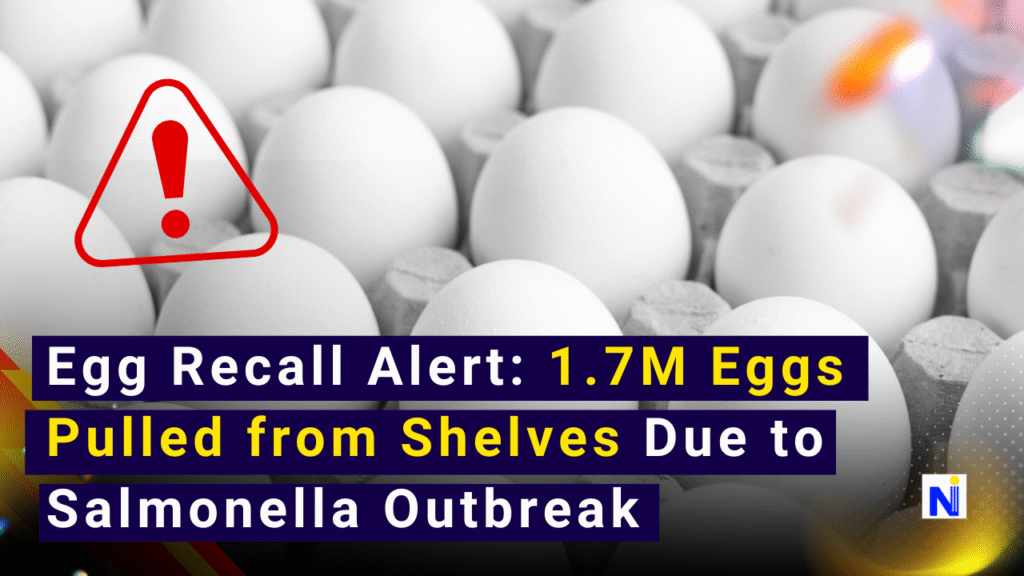
When Breakfast Turns Bad: The Story Behind the Nationwide Egg Recall
Eggs are a breakfast staple in most American households. From scrambled to sunny-side-up, it’s hard to imagine morning meals without them. But this week, the beloved egg has found itself at the center of a national health scare. Over 1.7 million eggs have been recalled due to a multistate Salmonella outbreak that has already sickened 79 people and sent 21 to the hospital.
If you’ve bought eggs recently—or even just cracked a few this morning—you’ll want to pay attention. Here’s everything you need to know, from affected brands to what to do next.
🚨 What Exactly Happened?
The CDC and FDA Step In
The Centers for Disease Control and Prevention (CDC) and the U.S. Food and Drug Administration (FDA) are actively investigating a Salmonella outbreak linked to eggs distributed by August Egg Company, based in Hilmar, California. These eggs were shipped from February 3 to May 15 to stores in:
- California
- Nevada
- Washington
- Arizona
- Nebraska
- New Mexico
- Illinois
- Indiana
- Wyoming
The eggs—marketed as brown cage-free and brown certified organic—were sold at major retailers including Walmart and Safeway, among others.
📉 By the Numbers: The Scope of the Outbreak
| Statistic | Number/Details |
|---|---|
| Total Eggs Recalled | 1.7 million |
| States Where Illnesses Reported | 7 (NJ, KY, NE, NV, AZ, WA, CA) |
| People Sickened | 79 |
| Hospitalizations | 21 |
| Deaths | 0 |
🛑 What Are the Symptoms of Salmonella?
According to the CDC, symptoms usually show up 6 hours to 6 days after infection and may include:
- Diarrhea
- Fever
- Stomach cramps
- Vomiting (in some cases)
People most at risk include:
- Children under 5
- Older adults
- Individuals with weakened immune systems
“Many people recover without medical treatment, which is why the true number of cases is likely higher than reported,” said a CDC spokesperson.
🥚 How Do I Know If I Have the Recalled Eggs?
Look out for sell-by dates ranging from March 4 to June 19. These eggs were distributed under multiple brands. Check the full list on the FDA recall site.
Tips to check your eggs:
- Look for the plant code and packaging date on the carton.
- If unsure, it’s safer to throw them out or return to the store.
“We urge consumers to act quickly. Do not eat, serve, or sell these eggs,” warns the FDA.
🧽 What Should I Do If I Have the Recalled Eggs?
Follow These Steps:
- Do NOT consume the eggs.
- Return them to the store or dispose of them safely.
- Wash any containers or surfaces that may have come into contact with the eggs using hot, soapy water.
- Monitor yourself and others for symptoms.
🏭 August Egg Company Responds
In a public statement, August Egg Company said:
“We began sending our products to an egg-breaking facility for pasteurization to eliminate the Salmonella risk. Our internal food safety team is conducting a full review.”
While they say they’re committed to preventing future incidents, the incident has raised serious questions about the food safety measures in place.
🔄 Not the First Salmonella Scare
This isn’t the only Salmonella outbreak recently. Just last month:
- Cucumbers grown by Bedner Growers and sold by Fresh Start Produce Sales were recalled.
- That outbreak affected 45 people in 18 states, with 16 hospitalizations.
It’s part of a troubling trend in food safety that’s keeping regulators—and consumers—on high alert.
🧠 FAQ – Frequently Asked Questions
Q1: How can I tell if my eggs are affected?
A: Look for the expiration dates between March 4 and June 19 and compare packaging codes with the FDA recall list.
Q2: Can Salmonella be killed by cooking eggs?
A: Yes, thorough cooking can kill Salmonella. However, it’s still advised not to consume recalled products.
Q3: What should businesses do with recalled eggs?
A: Stop selling or serving them immediately and disinfect any surfaces or tools they came in contact with.
Q4: What is an egg-breaking facility?
A: It’s a food-processing plant where eggs are cracked open and pasteurized to kill pathogens before use in commercial products.
🧾 Final Thoughts: Don’t Panic, Just Be Smart
We get it—news like this can scramble your sense of food safety. But with some smart, quick action, you can keep yourself and your family safe. Check your fridge, read those labels, and if in doubt—toss it out.
Stay informed, stay safe, and maybe go for pancakes tomorrow morning instead of eggs. 🍽️
👉 Have you checked your eggs yet? Let us know in the comments!






